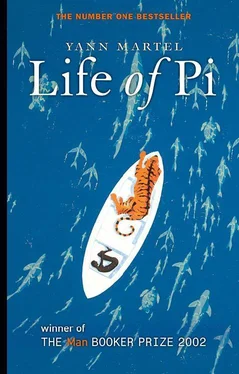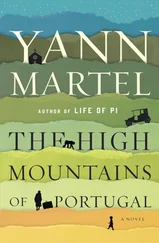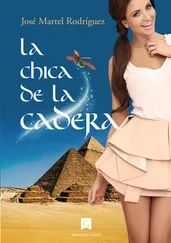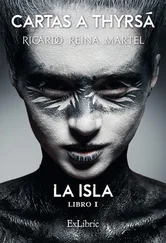Yann Martel - Life of Pi
Здесь есть возможность читать онлайн «Yann Martel - Life of Pi» весь текст электронной книги совершенно бесплатно (целиком полную версию без сокращений). В некоторых случаях можно слушать аудио, скачать через торрент в формате fb2 и присутствует краткое содержание. Год выпуска: 2002, ISBN: 2002, Издательство: Canongate Books, Жанр: Современная проза, на английском языке. Описание произведения, (предисловие) а так же отзывы посетителей доступны на портале библиотеки ЛибКат.
- Название:Life of Pi
- Автор:
- Издательство:Canongate Books
- Жанр:
- Год:2002
- ISBN:9781847674210
- Рейтинг книги:3 / 5. Голосов: 1
-
Избранное:Добавить в избранное
- Отзывы:
-
Ваша оценка:
- 60
- 1
- 2
- 3
- 4
- 5
Life of Pi: краткое содержание, описание и аннотация
Предлагаем к чтению аннотацию, описание, краткое содержание или предисловие (зависит от того, что написал сам автор книги «Life of Pi»). Если вы не нашли необходимую информацию о книге — напишите в комментариях, мы постараемся отыскать её.
Life of Pi — читать онлайн бесплатно полную книгу (весь текст) целиком
Ниже представлен текст книги, разбитый по страницам. Система сохранения места последней прочитанной страницы, позволяет с удобством читать онлайн бесплатно книгу «Life of Pi», без необходимости каждый раз заново искать на чём Вы остановились. Поставьте закладку, и сможете в любой момент перейти на страницу, на которой закончили чтение.
Интервал:
Закладка:
There are two-toed sloths and there are three-toed sloths, the case being determined by the forepaws of the animals, since all sloths have three claws on their hind paws. I had the great luck one summer of studying the three-toed sloth in situ in the equatorial jungles of Brazil. It is a highly intriguing creature. Its only real habit is indolence. It sleeps or rests on average twenty hours a day. Our team tested the sleep habits of five wild three-toed sloths by placing on their heads, in the early evening after they had fallen asleep, bright red plastic dishes filled with water. We found them still in place late the next morning, the water of the dishes swarming with insects. The sloth is at its busiest at sunset, using the word busy here in the most relaxed sense. It moves along the bough of a tree in its characteristic upside-down position at the speed of roughly 400 metres an hour. On the ground, it crawls to its next tree at the rate of 250 metres an hour, when motivated, which is 440 times slower than a motivated cheetah. Unmotivated, it covers four to five metres in an hour.
The three-toed sloth is not well informed about the outside world. On a scale of 2 to 10, where 2 represents unusual dullness and 10 extreme acuity, Beebe (1926) gave the sloth’s senses of taste, touch, sight and hearing a rating of 2, and its sense of smell a rating of 3. If you come upon a sleeping three-toed sloth in the wild, two or three nudges should suffice to awaken it; it will then look sleepily in every direction but yours. Why it should look about is uncertain since the sloth sees everything in a Magoo-like blur. As for hearing, the sloth is not so much deaf as uninterested in sound. Beebe reported that firing guns next to sleeping or feeding sloths elicited little reaction. And the sloth’s slightly better sense of smell should not be overestimated. They are said to be able to sniff and avoid decayed branches, but Bullock (1968) reported that sloths fall to the ground clinging to decayed branches “often”.
How does it survive, you might ask.
Precisely by being so slow. Sleepiness and slothfulness keep it out of harm’s way, away from the notice of jaguars, ocelots, harpy eagles and anacondas. A sloth’s hairs shelter an algae that is brown during the dry season and green during the wet season, so the animal blends in with the surrounding moss and foliage and looks like a nest of white ants or of squirrels, or like nothing at all but part of a tree.
The three-toed sloth lives a peaceful, vegetarian life in perfect harmony with its environment. “A good-natured smile is forever on its lips,” reported Tirler (1966). I have seen that smile with my own eyes. I am not one given to projecting human traits and emotions onto animals, but many a time during that month in Brazil, looking up at sloths in repose, I felt I was in the presence of upside-down yogis deep in meditation or hermits deep in prayer, wise beings whose intense imaginative lives were beyond the reach of my scientific probing.
Sometimes I got my majors mixed up. A number of my fellow religious-studies students—muddled agnostics who didn’t know which way was up, who were in the thrall of reason, that fool’s gold for the bright—reminded me of the three-toed sloth; and the three-toed sloth, such a beautiful example of the miracle of life, reminded me of God.
I never had problems with my fellow scientists. Scientists are a friendly, atheistic, hard-working, beer-drinking lot whose minds are preoccupied with sex, chess and baseball when they are not preoccupied with science.
I was a very good student, if I may say so myself. I was tops at St. Michael’s College four years in a row. I got every possible student award from the Department of Zoology. If I got none from the Department of Religious Studies, it is simply because there are no student awards in this department (the rewards of religious study are not in mortal hands, we all know that). I would have received the Governor General’s Academic Medal, the University of Toronto’s highest undergraduate award, of which no small number of illustrious Canadians have been recipients, were it not for a beef-eating pink boy with a neck like a tree trunk and a temperament of unbearable good cheer.
I still smart a little at the slight. When you’ve suffered a great deal in life, each additional pain is both unbearable and trifling. My life is like a memento mori painting from European art: there is always a grinning skull at my side to remind me of the folly of human ambition. I mock this skull. I look at it and I say, “You’ve got the wrong fellow. You may not believe in life, but I don’t believe in death. Move on!” The skull snickers and moves ever closer, but that doesn’t surprise me. The reason death sticks so closely to life isn’t biological necessity—it’s envy. Life is so beautiful that death has fallen in love with it, a jealous, possessive love that grabs at what it can. But life leaps over oblivion lightly, losing only a thing or two of no importance, and gloom is but the passing shadow of a cloud. The pink boy also got the nod from the Rhodes Scholarship committee. I love him and I hope his time at Oxford was a rich experience. If Lakshmi, goddess of wealth, one day favours me bountifully, Oxford is fifth on the list of cities I would like to visit before I pass on, after Mecca, Varanasi, Jerusalem and Paris.
I have nothing to say of my working life, only that a tie is a noose, and inverted though it is, it will hang a man nonetheless if he’s not careful.
I love Canada. I miss the heat of India, the food, the house lizards on the walls, the musicals on the silver screen, the cows wandering the streets, the crows cawing, even the talk of cricket matches, but I love Canada. It is a great country much too cold for good sense, inhabited by compassionate, intelligent people with bad hairdos. Anyway, I have nothing to go home to in Pondicherry.
Richard Parker has stayed with me. I’ve never forgotten him. Dare I say I miss him? I do. I miss him. I still see him in my dreams. They are nightmares mostly, but nightmares tinged with love. Such is the strangeness of the human heart. I still cannot understand how he could abandon me so unceremoniously, without any sort of goodbye, without looking back even once. That pain is like an axe that chops at my heart.
The doctors and nurses at the hospital in Mexico were incredibly kind to me. And the patients, too. Victims of cancer or car accidents, once they heard my story, they hobbled and wheeled over to see me, they and their families, though none of them spoke English and I spoke no Spanish. They smiled at me, shook my hand, patted me on the head, left gifts of food and clothing on my bed. They moved me to uncontrollable fits of laughing and crying.
Within a couple of days I could stand, even make two, three steps, despite nausea, dizziness and general weakness. Blood tests revealed that I was anemic, and that my level of sodium was very high and my potassium low. My body retained fluids and my legs swelled up tremendously. I looked as if I had been grafted with a pair of elephant legs. My urine was a deep, dark yellow going on to brown. After a week or so, I could walk just about normally and I could wear shoes if I didn’t lace them up. My skin healed, though I still have scars on my shoulders and back.
The first time I turned a tap on, its noisy, wasteful, superabundant gush was such a shock that I became incoherent and my legs collapsed beneath me and I fainted in the arms of a nurse.
The first time I went to an Indian restaurant in Canada I used my fingers. The waiter looked at me critically and said, “Fresh off the boat, are you?” I blanched. My fingers, which a second before had been taste buds savouring the food a little ahead of my mouth, became dirty under his gaze. They froze like criminals caught in the act. I didn’t dare lick them. I wiped them guiltily on my napkin. He had no idea how deeply those words wounded me. They were like nails being driven into my flesh. I picked up the knife and fork. I had hardly ever used such instruments. My hands trembled. My sambar lost its taste.
Читать дальшеИнтервал:
Закладка:
Похожие книги на «Life of Pi»
Представляем Вашему вниманию похожие книги на «Life of Pi» списком для выбора. Мы отобрали схожую по названию и смыслу литературу в надежде предоставить читателям больше вариантов отыскать новые, интересные, ещё непрочитанные произведения.
Обсуждение, отзывы о книге «Life of Pi» и просто собственные мнения читателей. Оставьте ваши комментарии, напишите, что Вы думаете о произведении, его смысле или главных героях. Укажите что конкретно понравилось, а что нет, и почему Вы так считаете.












